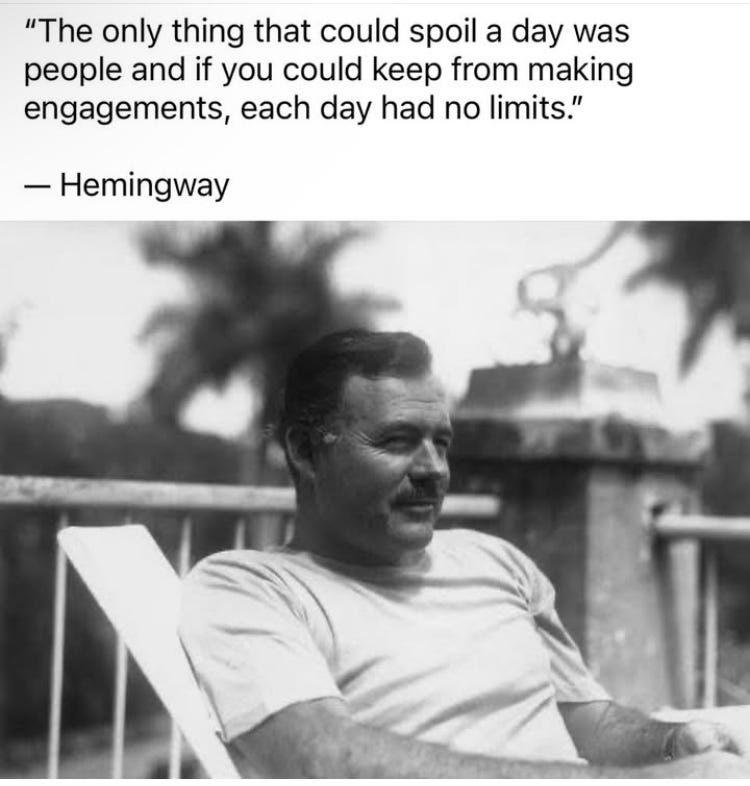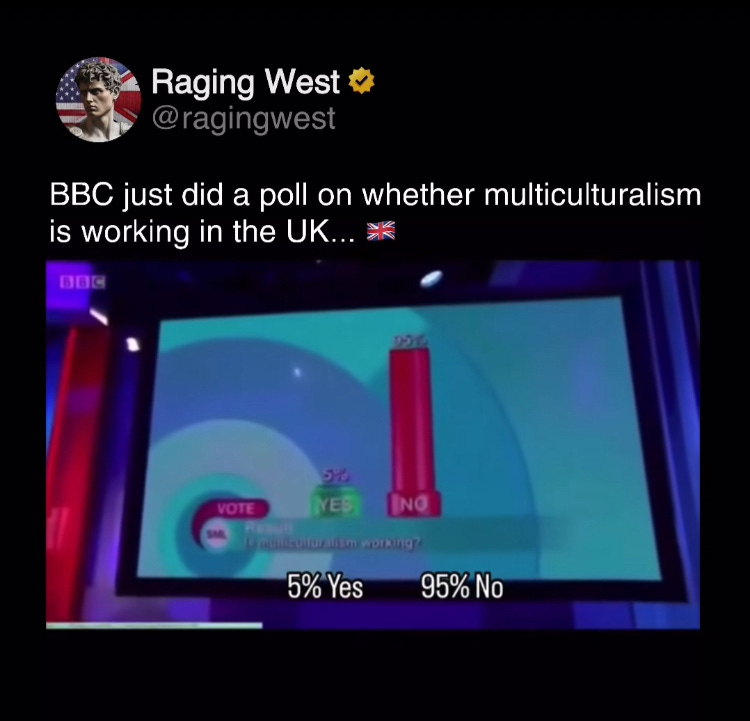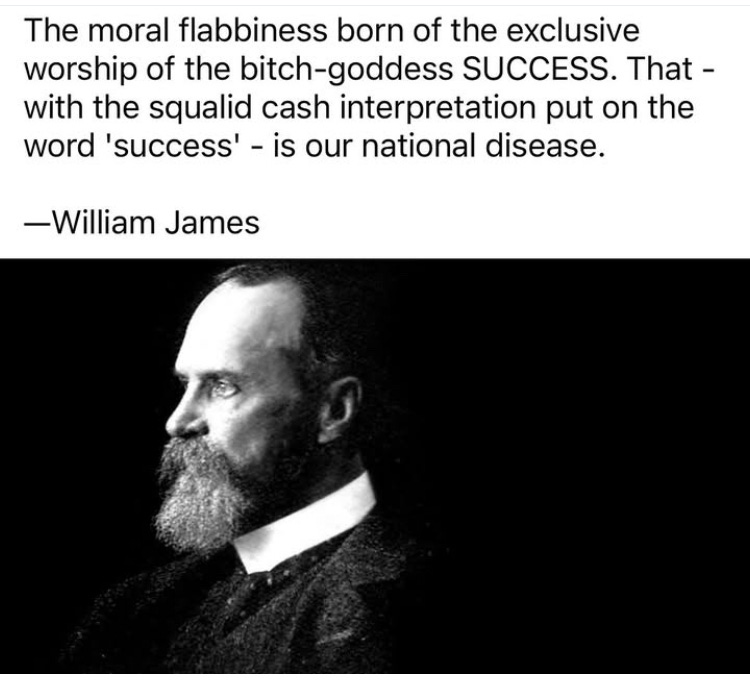A wandering reflection on the way that modern society no longer seems to validate or cultivate some of the traits which are innate in many men: risk-taking, antisociality and nonconformity, and competitiveness and pursuit of duty.
Risk-Taking & Competition
Over the weekend I participated in a Brazilian Jiu Jitsu tournament. Over the years I’ve participated in four other competitions, and won them all, as a white belt (beginner). This was my first competition as a blue belt (beginner-intermediate) and I was excited. I prepared for many weeks.
During my first match, I went out strong, grabbing my opponent’s shoulders and neck, pulling him down and trying to discomfit him and make him feel overwhelmed. I went in for a shot… and got kneed in the face. I saw stars, and my nose started bleeding after about 20 seconds.
In my next match I tried fighting, and scored a takedown, but my nose again began bleeding. I had stuffed as many paper towels into my nostrils as I possibly could, and the fact that the blood was soaking through wasn’t a good sign. I pulled out of the fight and went to the hospital, where I was told that I shattered my nose. Fights, boxing, war, BJJ-this was not my first concussion, and it won’t be my last. I increasingly feel like an oddity in this world.
Antisociality
Steven Pressfield is an author I very much admire. He worked as a trucker and a wage worker for years. He bought a tiny structure without running water or electricity and lived in it for many years, writing novels. His first one wasn’t published. His second failed. After more than 10 years of this, he wrote The Legend of Bagger Vance (a novel about golf, I think-never read it). Early-20th century novels about golf contests are not exactly a publishing grand slam, but the man did it. He had written a winner. He wrote Gates of Fire, about the battle of Thermopylae (which I have read, and zealously recommend) and has written novels and screenplays and guides to the writing life.
I could name a dozen examples like Mr. Pressfield, solitary, probably disagreeable, driven and yet nonconforming individuals. Most of them certainly die in obscurity. In fame or in obscurity, though, nearly all of them are men.
I would like to introduce a concept which, in my experience, is understandable to many men and almost incomprehensible to women: anti-sociality. It is the manner of living which says: forget career. Forget rank and expectations and status games and manners. “I’m going to live in my own way, on my own terms.” I understand this urge well. Most men probably only have a small glimmer of this sensibility within their personalities, but the concept goes with risk-taking, for there are few risks bigger than turning one’s back on society, even in part. If you’ve ever lived in your car or panhandled or been a fruit-picker or a window-washer, simply to maintain your freedom and the simplicity of your life and time in your schedule to drink or lift or write, then you know what I’m talking about. This ethos used to be important to our society, at least for some. It’s dying, for the simple reason that it is relentlessly suppressed and discouraged. The Longhouse doesn’t want strong, resilient, frugal, rebellious men. It would like to believe that these attributes can be disincentivized and weeded out. Perhaps it’s correct.
There used to be many opportunities for nonconforming and independent people to live on the margins, but as rules and taxes and technology have progressively encroached upon our society this manner of living has become harder to sustain. More importantly, such people are more and more ignored, excluded. Jack Kerouac, Chuck Bukowski, Frank Herbert-I could name a hundred more writers and intellectuals and artists who spent large parts of their lives in this fashion, and whose works and ideas were incorporated into the culture. Their insights about marginalization (real insights, and not pseudo-Marxist gobbledygook from nonprofit program directors and college professors whose closest experience to homelessness was Occupy Wallstreet) were investigated, considered, integrated. Will this generation have any such figures? Probably not, at least not through the old institutional forms of publishing and academia and Hollywood and intellectual circles. Those places have become stale and calcified. They no longer admit risk-takers (for the most part) or antisocial figures or the aggressive or misfits. These qualities scare and repulse modern publishers and college presidents and filmmakers. Is that partly because many more of them are now women? It’s certainly because these areas of our society are now thoroughly feminized, whether that can be attributed to women themselves or not (men are also now generally feminized). The thrilling (and difficult to describe) ingredients which can only be gained from an artist living on the street or a writer spending ten years in a rustic hut or a professional soldier or a boxer or a drunk have become devalued. We might once have called these ingredients worldliness or life experience or even wisdom. Now life experience means having several relationships in your 20’s and taking vacations to Europe and South America, and no one talks about wisdom anymore.
The Margins
In my life I have travelled through different parts of our society and have observed the margins with various degrees of familiarity: fighters, writers, drunks, soldiers, professional criminals, artists, vagabonds, drug-dealers, murderers, religious fanatics. The only marginal area that I can think of which is disproportionately comprised of women is the world of prostitution.
I could tell you other stories, about swimming across the Hudson River on a casual dare or joining a boxing gym in the Bronx or volunteering for a National Guard deployment to Afghanistan. The idea that your teen years should be spent accumulating merits for your 20’s, which should be leveraged into career and onward and upward, until retirement, is a useful path for some, but not all. I suspect that a life of classes and lectures of office work and meetings is better suited to female workers, in general, and that’s why I call these social trends ‘feminization.’ There is a kind of restless, competitive masculine energy which can still be fruitfully channeled in our society, but the opportunities for its useful release are vanishing by the day. There are urges and drives which seem innate among a certain percentage of humans in a culture. What happens when these drives cannot legitimately be expressed? A successful society makes room for all of the deepest biological urges of its members and finds ways to channel them to its benefit. Ours is rather choosing to suppress these urges, and to try to forget that they exist.
If you want to be an artist these days, would you live on the streets of Alphabet City, begging and creating street murals, like Jean-Michel Basquiat? You’d probably try instead to get good grades in high school, and write an essay highlighting your structural disadvantages, and go to an art program in college. You’d go to class, complete your projects, and try to get a position selling commissions to rich folks and gallery owners. Maybe you would get a grant from the federal government, (better if you weren’t a straight white man). If you wanted to be a novel writer these days, would you drive freight trucks and buy a small, dilapidated house, and spend years typing away? You’d probably try to get good grades in high school, and write an essay highlighting your structural disadvantages, and go to a creative writing program in college. You’d enter story and essay contests, and try to get your work seen by publishers (about 75% of whom are now women) or win a major contest (~80% of which are won by women). (There’s Substack of course-more on this and alternative platforms later).
Masculine Hierarchies
This isn’t an essay about fighting or art or creative writing. It’s about society. It’s about young men. Every society needs a way to validate the restless and competitive urges of its young men. I’m not talking about soccer leagues and band camps. Every society needs places for young men to go who will not go to college (at least not while they’re still psychological children). There’s the military… but many people want to turn the military into a veritable reflection of bureaucratic HR culture. They largely succeeded, for awhile, and they’ve fully made the change in many developed countries. Do you think killers and tough, competitive young men find satisfaction in the British military these days? In the German? They can go to Ukraine, of course, but that illustrates a different point: whenever an organization has to deliver on its central mission (like repelling an invader) bureaucratization recedes or vanishes entirely. If Great Britain were attacked this reversal might happen there too, but who would fight? Most of their restless young men are on welfare, or working in smoke shops, or in jail. They hate their government, because their government feels contempt for them.
There’s the police, and there’s firefighting… but both of these areas of society have been thoroughly feminized. If you open an organization up to women and lower the standards and make belittling or bullying a punishable offence and require sensitivity trainings and fail to reward the risk-takers and the oddballs and the usefully aggressive many young men will not join. Some will join, and leave, after becoming disgusted at rules and bureaucratic strictures and sexual harassment investigations.
I’ll give you an example: I was in the infantry. I went to Ft. Benning for basic training. I served in Afghanistan. I went to do training in North Carolina and New York and Pennsylvania. The men I served with weren’t commandos. Some of them were old, some were rather chunky, many were impulsive (it was the infantry, after all) or painfully dumb. But when we were there and when we trained together, we became more than the sum of our individual parts. That team-building effect is difficult to quantify or describe, but it had a lot to do with insults and outdoor challenges and smoke sessions and fights in the bathroom. Later, the team dynamic became almost familial (or tribal) when we were overseas. Having a single woman involved, in any capacity, would’ve completely changed the dynamic. Admit 10% women into basic training and change the training requirements and physical fitness and behavior standards (which is something that always happens) and many of those men will simply never try to join. What might they do instead? What are restless and antisocial young men doing now?
The Sedation Hypothesis
We’ve identified three (rather blurry) social concepts here: risk-taking, antisociality, and masculine hierarchies. I would submit that each of these elements is increasingly being treated as frightening vestiges from the primitive days of the 20th century. Are they ever addressed head on by school administrators or policymakers? Are the even acknowledged as inevitable and possibly constructive masculine social realities? Risk-taking has never really been codified into most of our social structures (risks are too risky; the risk-taker is usually rather on his own). Antisociality was similarly never exactly recognized, which is understandable. It stands in opposition to the dominant norms and institutions. But masculine hierarchies have been unrecognizably changed in the past 50 years, in order to admit women and change the standards and training and identities, and so they’ve become less appealing to restless young men. If they were changed back, they would immediately become more appealing, and I think they would become more energetic, more driven, and more effective. I would love to see some experiments in this direction, but the truth is that the people who made these changes aren’t interested in whether fire departments which allow women are more or less effective at fighting fires. Their priorities lie elsewhere, and they’re driven not by a sense of mission or duty, but of social change. These two things can never be coincident, and they usually operate at cross-purposes.
A young man used to be able to get a writer’s job in Hollywood on the basis of some exciting pulp stories and a successful novel. Would that white young man, without a college degree have any hope of such a thing these days? Jack Kerouac took work as a fire watch tower occupant for a summer, and used the time to write (and drink wine). Would such a thing ever happen now? Hitch-hiking, boxing, easy wage-work-it’s all gone. It’s not only that our economy has closed up, become more bureaucratized and more credentialist and more moribund. It’s that the emotional challenges of restless young men are being ignored and forgotten. Worse, they’re being sedated.
We now have an uncomfortably large number of young men without outlet or romantic prospect or opportunity. More and more people recognize this, but they shy away from the implications: these lacks and these dissatisfactions are a natural byproduct of the civilization that we have constructed. If you won’t let people take risks or live outside the bureaucratic apparatus, and you make it nearly impossible to survive without credit cards and phone apps, you will change the culture and that change will disproportionately affect young men. If you change education such that boyish energy is all but forbidden and girls marginally benefit from grades and selections and scholarships, you will disproportionately hurt boys and young men. If you remake the economy such that more and more resources are gobbled up by safetyist bureaucracies and credentialized professionals (requiring 4-8 years of sustained and conformist activity) you will disproportionately affect young men. All of these changes will tend to harm the risk-takers, the outcasts, and the competitive personalities (yes, even the leaders) more than others. In a very real way, our system is actively trying to suppress the biological and cultural symptoms of masculinity.
If you try to make everyone conform, you will be punishing the nonconformists. If you try to make everyone conflict avoidant and gentle, you will be punishing the direct and the aggressive. If you try to make everyone more feminized, you will be punishing those who are masculine. Our policymakers understand this, but a country full of free-spirited, independent, nonconformist men who won’t suffer restrictions and are not too invested in the social order is simply intolerable for them. They would rather all such people were in prison, or dead, than have to change their sociopolitical vision to recognize their existence.
So why are there no revolutions? Where’s the insurgency in Great Britain against a hostile regime which has all but proclaimed its intention to remake the country’s demographics and erase its historical legacy, and which has imprisoned thousands of people for expressing dissatisfaction? Where are the long feared ‘far right’ and ‘white supremacist’ organized acts of violence in Germany or the United States? Nearly all of the coordinated violence that we’ve seen in the past decade has either been of the character of lone wolves, or it’s been leftist. Where are the young men who are uniting in organized rejection of this new social order, which endeavors to neuter them?
It is possible that the other major feature of our civilization is operating in support of the bureaucratizing trend (which includes safetyism and credentialism and feminization): the monetization and cultivation of addiction (which also tends to disproportionately affect men). It is possible that young men, who certainly feel aimless and frustrated and disenfranchised, are salving their alienation and disaffection with OnlyFans and video games and pornography and marijuana and vapes and food deliveries. I’m not claiming some kind of conspiracy here. Many goods and services are sold… and only the ones which are proven to be compulsive and narcotizing for lonely and disconnected modern people (nearly all men) succeed and make money. Many influencers and ‘coaches’ and public intellectuals emerge… and only the ones who promote messages which appeal to restless and driven young men are flagged as dangerous and actively fought and suppressed, since they’re at odds with the goals of the bureaucratic superstructure. The two trends end up reinforcing each other, just like climate change and natural selection both end up driving phenotypic adaptation.
Andrew Huberman is a neuroscientist who operates a science-based podcast about sleep improvement and supplementation and cognitive health, etc. He has been castigated in our culture and was the focus of a cover story in New York Magazine. It was definitely a hit piece, but the only dirt the writers could find is that Huberman seems to have compulsively dated multiple women simultaneously. The fact that the (female) writers think that pointing out that a public speaker/content creator is dating multiple women will hurt his credibility shows how far these people are from the mindset of young men. Jordan Peterson has been demonized by film producers, is fighting to keep his professional licensure in Canada, and is effectively unpersoned in the mainstream. Andrew Tate may be a sex trafficker (I doubt it, personally) but you only know his name because he has crafted a message custom-built for confused young men. It’s fairly toxic and it’s definitely not going to lead to happiness for the boys who conform to it, but the point is he’s talking to them. Just as girls need their own messages and resources, so do boys. Who do we have in the culture who is feeding the enthusiasms and dreams of boys who are restless and antisocial and driven and competitive? Every such person is deliberately marginalized and suppressed. As boys become men, where are the places where they can find expression in these urges? Where are their films and stories? Where are the new novels in school libraries? What social organizations permit and develop them? Where are the parts of society which are conditionally open to outsiders who’ve proven themselves to be gifted and disciplined? Where are the masculine hierarchies where men who care about heroism and duty can flourish?
Obviously, these places still exist, and more are emerging. I’m not making an absolute claim. There are still military units and the UFC and Brazilian Jiu Jitsu tournaments. There are still police forces with special street units which still operate with masculine ethos, and there are probably fire departments which are similar. The encroachment of the bureaucratic state has made it much harder to move to a new city and get wage work and rent a tiny apartment and move around freely. The restrictions of gasoline taxes and regulations and hiring verifications and rental insurance and court fees and credit scores have made this kind of life much more difficult than it was even 50 years ago, but it’s still possible. These days many of the people living in this manner in the United States are illegal immigrants-our underclass has been pushed into wage work for corporations, or government dependency (usually some combination of the two). My point relates to the direction of our society’s movement, and the implications for everyone. Our system is closing itself off to those without college degrees and without the conformist tendency to stay in the classroom and the lab for 6 years and without the inability to avoid extreme life experiences. These lacks seem rarer and rarer, especially within our institutions, and people who don’t have these things are simply no longer welcome in the middle class, or even in the workforce. Without making any allowances for the suffocating nature of modernity, modern people are expected to live within the boundaries erected and compete on their terms. It’s not surprising that this lifestyle (well-behaved high school tenure, college, credential, profession, apartment rental, shopping and vacations) is more suited to and satisfying for young women. In a sense the bureaucratic system is built for them. It’s not built for risk-takers or misfits or alpha males. It probably never was, but it used to be possible to get purchase in a dozen different ways and to build your status and your life with these traits, rather than trying to hide them, even if the building was delayed or roundabout. That increasingly seems not to be the case. Maybe I’m wrong? Maybe I’m imagining things. Maybe I just got hit too hard.
Postscript: New structures are emerging to replace the old institutions. Substack allows writers (even writers who are itinerant fighters, like me) to gather support and distribute their work. YouTube allows content creators to generate real wealth, and there are now alternative platforms for artists and book publishers. I suspect that these platforms will continue to grow in size and importance, as time goes on and as our traditional cultural institutions become more exclusive (which is ironic, given their rhetoric) and feminized. Within a decade or two many of them will have faded into irrelevance. The effort to redistribute wealth using ESG scores and to hand out billion-dollar grants from the federal government is an effort to reverse this process, and to shore up the cultural fortifications of the gatekeepers. You can expect to see many new regulations and interventions on these new platforms as time goes on, in an effort to integrate them into the ‘mainstream’ and to change their compositions and content and culture. They will never be supported or advertised by the dominant institutions. There are serious obstacles when it comes to federal funding for universities and the vice grip that institutions have on research and credentialing organizations but change will come, slowly.
The feminization of our older masculine hierarchies (military, police, firefighter, prison guard, etc.) is a much more serious problem and has almost spread to every area. I will write something more detailed about this soon. Some of the blame lies with ‘the fantasy of female power’ (itself the product of intentional cultural manipulation) and plenty lies with activists. Most members of the organizations just want to do their job, and when word comes from above that recruiting and then selecting and then training and then evaluating must be changed to alter the complexion of the organization and exclude the risk-takers and the nonconformists in favor of the agreeable and the tolerant and the sympathetic, the changes are made. If those leaders won’t make the changes, then they’re sacked, and new ones-more flexible and cooperative ones-are quickly chosen. Once the bureaucracy acquires a progressive tinge enormous harm can be done, and no one ever asks the people actually doing the job what they think or recommend. They will conform, or they will be pushed out. The mantra of our age.










In my long corporate career I saw the changes you've described taking place. Thousands and thousands of hours wasted on diversity training and harassment awareness and indigenous rights awareness and Pride month and...and....just bullshit. Almost all of it seemingly driven by women in the HR and WH&S departments.
I'm recently retired and incredibly grateful that I'll never be forced to live through another scolding corporate training session telling me I have to be nice, at risk of my job.
I thought this was a great piece of writing. However...there has and continues to be plenty of women who've struck out, lived on the edge, defied convention. Its not a trait particular to men. Plenty of adventurous risk taking women out there.